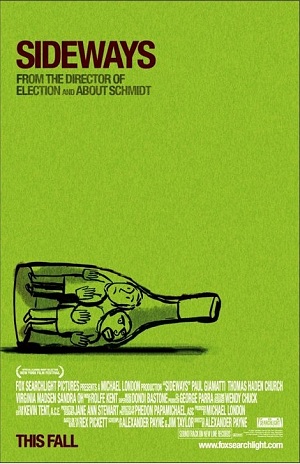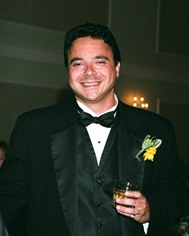 As we find ourselves midway through the holiday season, after “giving thanks” and gorging ourselves at dinners in celebration of family and friends, we now turn to trying to find that perfect gift for our loved ones – gifts that truly express what their love and friendship has meant to us.
As we find ourselves midway through the holiday season, after “giving thanks” and gorging ourselves at dinners in celebration of family and friends, we now turn to trying to find that perfect gift for our loved ones – gifts that truly express what their love and friendship has meant to us.
But is there a ‘perfect’ gift? Can something material ever define something as complicated an emotion as love? In seeking the perfect gift, we become reflective. We try to purchase that one or several items that will comprise, in some way, how we feel about that special someone. But when we reflect, trying to define our love or feeling, we find ourselves internally moving toward where our love or feeling for that person lies. Ironically, two recent movies have tried to point us in those directions.
For Rex Pickett, the emotions and love that feed our friendships and intimate relationships can be found by just moving ‘sideways.’ Sideways, the Alexander Payne film based on Pickett’s novel, is the story of Miles and Jack, former college roommates who go for one last road trip before Jack’s impending nuptials. Miles (Paul Giamatti) decides to drive Jack (Thomas Haden Church) to Napa Valley, where Miles can show Jack the vineyards and drink the wines that Miles has grown to love through his hobby of wine tasting. While Miles wants to share his love of wines with Jack, the trip is, in essence, an escape for both men.
For Miles, a divorced schoolteacher who aspires to be a novelist, the escape is from the loneliness of his failed marriage and the torture of waiting to see if his manuscript will be published. For Jack, a lifelong bachelor and washed-up TV actor resigned to doing voice-over work, the trip is more of a diversion. Jack can help his friend Miles through a difficult time while trying to fulfill one ‘last hurrah’ before his upcoming wedding (and maybe get Miles some female companionship as a bonus).
In the course of their journey through wine country, they meet Maya and Stephanie. Maya (Virginia Madsen) is a waitress that Miles has seen before in his travels to wine country and he has admired her from afar; Stephanie (Sandra Oh) works at a local winery and sparks Jack’s interest. In Jack’s pursuit of Stephanie, he finds she knows Maya. A double date is orchestrated by Jack and what follows their dinner together provides one of the best-acted and well-written scenes you’ll find in the movies this year.
As Jack and Stephanie enjoy each other’s company in an adjacent room, Miles and Maya sit in a back room of Stephanie’s house. They are in that awkward position of getting to know one another with the potential of sharing physical intimacy. Miles and Maya begin talking about wine – he’s a self-taught connoisseur; she’s a horticulture student. Miles begins describing Pinot Noir wines, how the grapes that produce the wines must be cared for. The grapes are sensitive to temperature and are thin-skinned; they must be nurtured. Maya responds by talking about her fascination with wines stemming from thinking of the people that brought the wine into existence and how in each bottle of wine, the wine itself is a living thing. What the two are doing in the conversation is talking about themselves – Miles explaining his need for nurturing and his sensitivity, Maya describing her understanding and ability to accept and love something as a sum of its parts. The scene, as Pickett has written it, demonstrates how love can be found if you look at it from a different point-of-view.
To truly get to the heart of the matter of where love is found, Patrick Marber asks that we all look ‘closer.’ In Mike Nichols’ Closer, based on Marber’s play that examines the relationships of two couples over a four-year span, love is an animalistic emotion, or notion, dictated by our physical existence.
Closer begins by introducing us to Dan (Jude Law) and Alice (Natalie Portman). They are simply two people walking toward each other on a city sidewalk. As they move closer toward one another, their eyes meet and a brief flirtation begins to surface. In a few moments, Alice is involved in an accident that subsequently involves her with Dan. The two begin living together.
A couple of years later, Dan has written a book about his encounter with Alice and meets Anna (Julia Roberts). Anna is a photographer assigned to take Dan’s picture for his upcoming published book’s jacket. Again, an attraction is felt and Dan kisses Anna. While the attraction is mutual, Anna avoids Dan in deference to Alice – Anna does not want to become involved with someone who’s involved. Dan, undeterred, begins pursuing Anna and Closer becomes more of a story of how our relationships are dictated by our own animalistic nature than our humanistic instincts.
There are scenes in Closer that depict this battle. In one scene, Larry (Clive Owen), a doctor whom Anna eventually marries, is verbally confronted by Dan. Dan accuses Larry of manipulating Anna, describing Larry’s cold-calculation as Larry viewing the ‘heart’ (love) as a diagram. Larry responds by asking, “Have you ever seen a human heart? It looks like a fist covered in blood.” Love is pain, in Larry’s world, and “to the victor goes the spoils.”
In another scene in Closer, Larry, having fought with Anna, finds solace in a strip club. Alice, who works as a stripper in the club under the name “Jane,” dances for Larry in a private room. Larry, having met Alice previously, desperately throws money at Alice, wanting her to be truthful with him as he asks for her real name. She simply thanks Larry for the money and replies, “Jane.” Larry becomes frustrated with her lying. “Lying is the most fun a girl can have without taking her clothes off,” Alice explains, “but it’s more fun if you do.” The conversation between Larry and Alice is another of the better written and acted scenes you’ll find in the movies this year.
Whether you want to follow Rex Pickett’s advice and look ‘sideways’ or take Marber’s ‘closer’ introspection under consideration, you can’t really run that far astray. Through both mens’ writings and these film adaptations from gifted directors like Payne and Nichols, Sideways and Closer leave you with choices. If you haven’t seen them yet, they at least give you good movie-going choices.
Still shopping for the ‘perfect’ gift? Take heart. As both Sideways and Closer can attest, it’s never too late to start looking.
